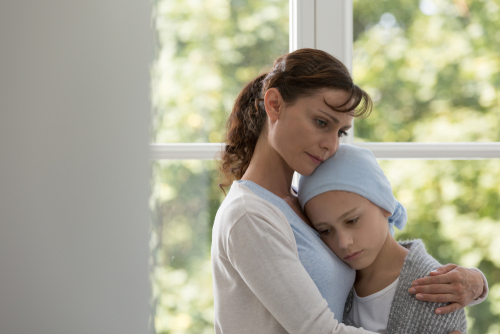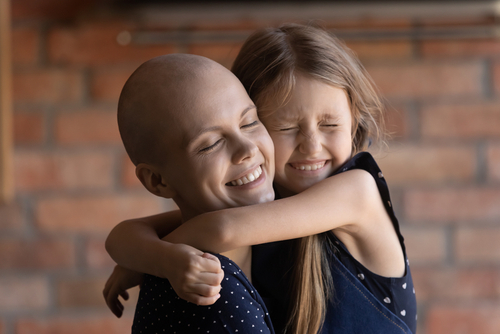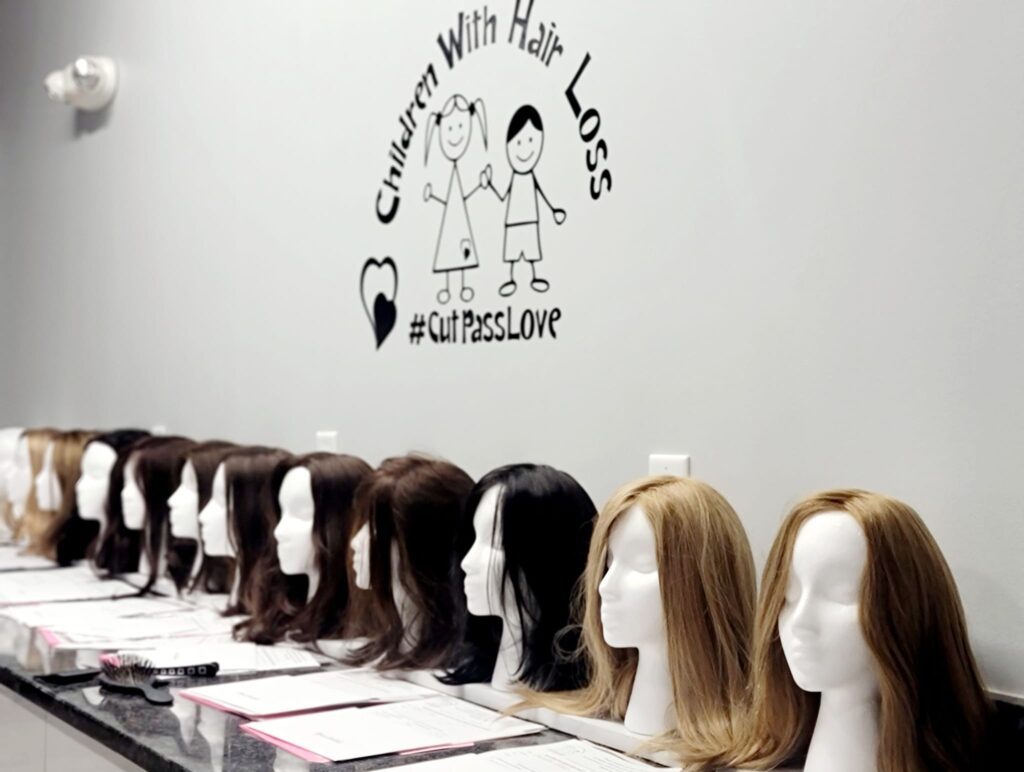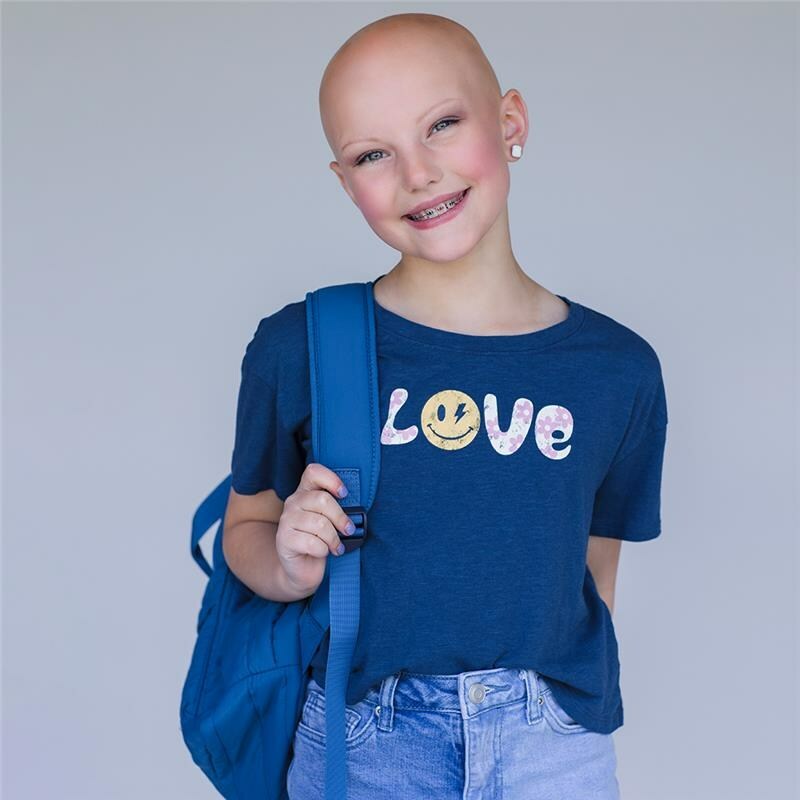Most people lose some hair every day – roughly 50-100 strands; and an ample amount naturally grows back to maintain a full head of hair. But sometimes one’s hair growth cycle falls short. Aside from the aging process, a person may experience medically related hair loss because of genetic conditions, hormonal changes, illnesses, medications, stressors and an array of other reasons. And while some people confidently rock a bald or shaven head, others emotionally struggle when hair thins or falls out.
If you need another reason to cut your hair this summer, know that August is National Hair Loss Awareness Month. It’s a time to brush up on medically related hair loss and learn how your next haircut can make a difference.
Male pattern baldness (MPB), or androgenetic alopecia, accounts for 95% of hair loss in men. But hair loss isn’t just a male issue. According to the American Hair Loss Association, women actually make up 40% of hair loss sufferers in the United States. Furthermore, children’s hair loss is responsible for about 3% of all pediatric office visits in this country. Yes, far beyond the typical bald baby stage, many children and adults go through medically related hair loss, which can be a devastating experience and negatively impact one’s mental health.

Medically related hair loss may be caused by:
- Alopecia areata: A common autoimmune condition affecting seven million Americans. Alopecia areata may cause either total or partial loss of scalp and body hair, says the National Alopecia Areata Foundation.
- Cancer and cancer treatment: Affecting a whopping 1-in-3 people in America, cancerous (or abnormal) cells are often treated with chemotherapy, radiation and medications, which frequently causes hair loss.
- Lupus: According to the Lupus Foundation of American, many people with lupus have skin issues, like rashes or sores on the scalp, that cause hair loss. Hair thinning or loss is also a side effect of certain medicines used to treat lupus, like steroids and immunosuppressives.
- Physical trauma: Third- and fourth-degree burns can damage skin, hair follicles and cause scarring. Unlike alopecia areata which is not classified as a disability in legal terms, scarring alopecia can garner disability benefits for eligible veterans through the Department of Veterans Affairs (VA). This may be especially important to note for veterans experiencing PTSD and emotional turmoil.
- Polycystic ovary syndrome (PCOS): An estimated 5-10% of U.S. women of childbearing age have PCOS, which causes elevated levels of testosterone and its metabolite dihydrotestosterone (DHT). That causes follicles to shrink and become thinner, leading to hair loss.
- Psoriasis: This chronic condition causes itchy, scaly patches on the skin, which generally appear on the knees, elbows, trunk and scalp.

- Scalp infections: Scalp ringworm can cause patchy skin irritation, as well as hair loss. And staph A bacteria may cause folliculitis decalvans and, ultimately, baldness.
- Sexually transmitted diseases (STD): Particularly if left untreated, some STDs, like syphilis, can cause hair loss. People living with HIV and AIDS occasionally experience hair loss due to infection, nutritional deficiencies or hormonal changes.
- Telogen effluvium: Typically leading to temporary hair loss, telogen effluvium occurs following a stressor or change to the body, like childbirth or other hormonal changes/imbalances, psychological stress and infections (such as COVID-19), among other causes. Poisoning, such as thallium or arsenic poisoning, can also lead to a certain hair loss called anagen effluvium.
- Thyroid disease: Hypothyroidism (underactive thyroid) and hyperthyroidism (overactive thyroid) may cause hair loss, plus additional symptoms.
- Trichotillomania: Categorized as a mental disorder, those affected by ‘trich’ have an uncontrollable urge to pull hair from their scalp, eyebrows and other areas.
- Vitamin deficiencies: A lack of dietary and supplemental nutrients, like iron, vitamins B & D and zinc, can impact the hair growth cycle.
- Other auto-immune disorders & chronic conditions: Hair thinning and/or loss may also be a symptom of diabetes, fibromyalgia, Graves’ disease, Hashimoto’s thyroiditis, heart disease and Lyme disease.
While not medically related, per se, chemical burns or damage can occur from harsh haircare like perm and dye products. Additionally, excessive styling, like frequent ponytails, can impact hair.

Here’s Why You Should Cut Your Hair
Hair loss — whether temporary or permanent — can trigger anxiety, depression, embarrassment, frustration, jealousy and self-consciousness, as well lead to withdrawal or isolation. Women and children who experience medically related hair loss may be at greater risk of experiencing these troubling emotional side effects.
Some causes of hair loss are treatable. Medication, hair transplants and platelet-rich plasma (PRP), for instance, may be applicable; still, others prefer headscarves, hats and wigs. Many people don’t realize that they can help provide wigs to those in need just by getting a standard haircut!
That’s the very mission of Children With Hair Loss, a nonprofit that provides human hair wigs at no cost to children and young adults facing medically related hair loss. Regina Villemure, a former cosmetology instructor, hairstylist and hair replacement specialist, established the organization in 2000 in honor of her niece, Sarah. While visiting Sarah in the hospital during her ordeal with Acute Lymphoblastic Leukemia, Regina noticed that pediatric patients were outfitted in adult-sized synthetic wigs which weren’t ideal, flattening or mood boosting. Regina came up with a solution for the hairy situation and, now, Children With Hair Loss serves over 600 children per year.

Main Benefits of Taming Your Mane
Those that chop and contribute their hair to charitable organizations may benefit too. A hair donation may:
- Potentially be free of charge, as some partnering salons offer a donation cut on the house. Plus, with a shorter bob, one can scale back on the amount of styling products used and, thus, spend less on haircare.
- Help maintain proper grooming habits, which is essential for mental wellbeing. A fresh haircut can boost self-confidence. Plus, a cut and wash can feel nice and relaxing, especially for sensory seekers.
- Lead to healthier, shinier and fuller hair because, according to haircare experts like L’oreal Paris, locks should be trimmed about every three months to effectively part ways with damaged hair and split-ends.
- Foster the “do good, feel good phenomenon!” Research suggests that when someone does something good, a happiness high ensues.
Normalizing Medically Related Hair Loss
Bald is beautiful, says Evsie, a clothing brand for young girls. The company recently welcomed a new brand ambassador, 8-year-old Hadley McNulty, who’ll appear in various marketing campaigns. The brand’s mission is centered on helping youth build confidence and self-expression through fashion, as does Hadley, a fashionista with alopecia who also advocates for Children With Hair Loss.
Many celebrities have brought hair loss into the spotlight. Actors Alyssa Milano, Jada Pinkett Smith, Matt Lucas, Neve Campbell, Rickie Lake, Tyra Banks and Viola Davis have all publicly shared their experiences with medically related hair loss. Comedian Kathy Griffin and singer Kellie Pickler each shaved their head in solidarity of a loved one undergoing cancer treatments. Additionally, other stars have donated their tresses, like actress Shailene Woodley and TV home designer Chip Gaines (both to Children With Hair Loss), singer Harry Styles (to Little Princess Trust), and actress Amanda Seyfried and snowboarder Shaun White (each to Locks of Love).

Who Accepts Hair for Wigs
Several charitable groups accept donations, such as:
- Angel Hair Foundation (accepting only financial donations at press time)
- Chai Lifeline
- Children With Hair Loss
- Hair We Share
- Little Princess Trust
- Locks of Love
- Wigs For Kids
- Maggie’s Wigs4Kids of Michigan
Editor’s Note: AmeriDisability’s own editor, Nancy DeVault, donated locks to Children With Hair Loss.






